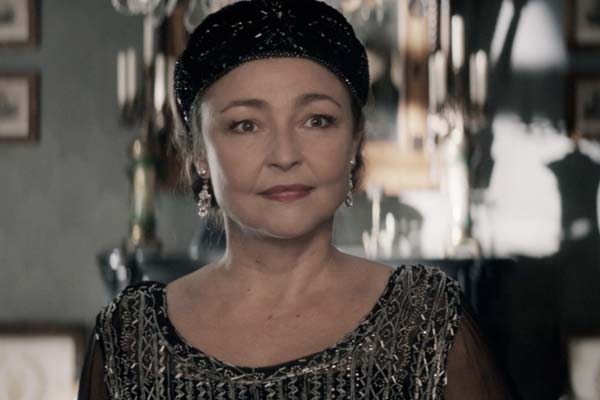With Marguerite, French director Xavier Giannoli has crafted a deliciously mischievous and amusing satire that could easily pass as a comedy drama.
Based on the life of New York heiress Florence Foster Jenkins, who dreamed of becoming an opera singer - despite having a terrible singing voice - Giannoli’s two-hour production tracks the manoeuvres of wealthy Parisian socialite Marguerite Dumont, a shameless prima donna with more money than talent.
Married to a philandering, titled husband Georges (Andre Marcon), Marguerite unashamedly buys her way into the spotlight – albeit with the acquiescence of a handpicked, invite-only circle of acquaintances who applaud her performances while laughing behind her back.
Following a particularly tragic performance - so truly awful the guests don't even know how to respond – Marguerite’s sycophantic faux-friends once again conspire to keep the horrible truth from her. Instead of self-realisation, she is showered with an avalanche of flowers from her ‘adoring admirers’.
This outpouring of affection convinces Marguerite to not only keep singing but to work towards a public performance. Duped by a couple of young lads into believing she would be sharing the bill with Charlie Chaplin, Marguerite takes to the stage in a small venue that is being run by a group of anarchists. Such is her delusion that even when she is laughed off stage and barred from her singing club, she doesn’t retreat.
Instead, she enlists the help of her manservant Madelbos (Denis Mpunga), to assist her career. He dutifully finds an out of work and washed-up opera singer to coach her - while he adds to the spectacle, and the deceit, by photographing her in myriad different operatic costumes.
After months of training, Marguerite decides to take the plunge and perform before a ‘real audience’. She hires a theatre, sends out the invites and packs out the venue. Coaxed by her friends, Marguerite takes to the stage wearing a pair of feathered wings but tragedy awaits and at this point Giannoli steps up the tension between husband and wife – exposing the frailty of the relationship and the fact that the baron is happy to maintain his place in this marriage of convenience.
The outcome of her unbridled ambition is both tragic and cruel and Giannoli manages to transport us past the more obvious comedic structures to a genuinely moving finale where Marguerite’s fate is sealed and love finally arrives. And throughout all of this, it is hard not to feel compassion for the unloved Marguerite.
This film is both funny and emotionally confronting and it will stay with you for a long time after the final credits.
The 2016 Alliance Francais French Film Festival is showing in Brisbane until 3rd April and culminates in Hobart on 4th May.






